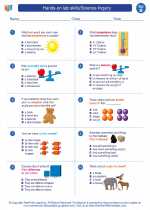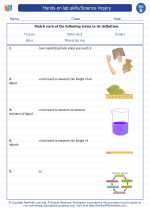What is Commensalism?
Commensalism is a symbiotic relationship between two species in which one species benefits while the other is neither helped nor harmed. The commensal species benefits from the relationship, while the host species is unaffected.
Examples of Commensalism
1. Barnacles and Whales: Barnacles attach themselves to the skin of whales, benefiting from the constant movement and access to food particles in the water, while the whales are not significantly affected by the presence of the barnacles.
2. Orchids and Trees: Orchids can grow on the branches of trees, using them for physical support and access to sunlight, while the trees are not harmed or significantly affected by the presence of the orchids.
3. Remora Fish and Sharks: Remora fish attach themselves to sharks, gaining access to food scraps from the shark's meals, while the sharks are not affected by the presence of the remora fish.
Characteristics of Commensalism
- One species benefits, while the other is neither helped nor harmed.
- The relationship is long-term and often involves physical attachment or close association between the two species.
- The commensal species may gain access to food, shelter, or transportation through the relationship.
Importance of Commensalism
Commensalism is important in ecosystems as it demonstrates the interconnections between different species. It also contributes to the overall biodiversity and stability of ecological communities.
Quiz Questions
- What is commensalism?
- Provide an example of commensalism in nature.
- What are the characteristics of commensalism?
- Explain the importance of commensalism in ecosystems.
[Commensalism] Related Worksheets and Study Guides:
.◂Science Worksheets and Study Guides Second Grade. Hands-on lab skills/Science Inquiry

 Worksheet/Answer key
Worksheet/Answer key
 Worksheet/Answer key
Worksheet/Answer key
 Worksheet/Answer key
Worksheet/Answer key
 Vocabulary/Answer key
Vocabulary/Answer key
